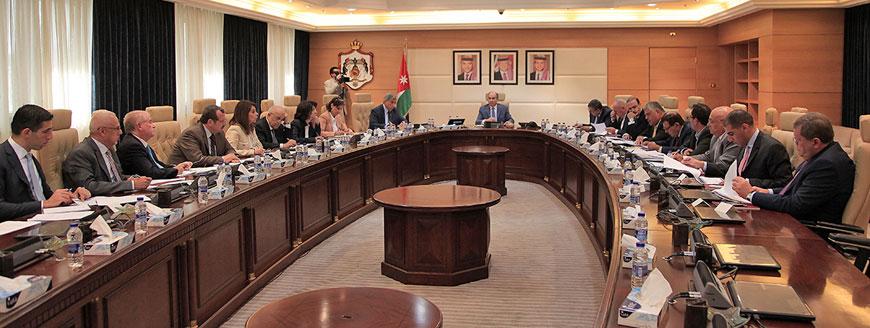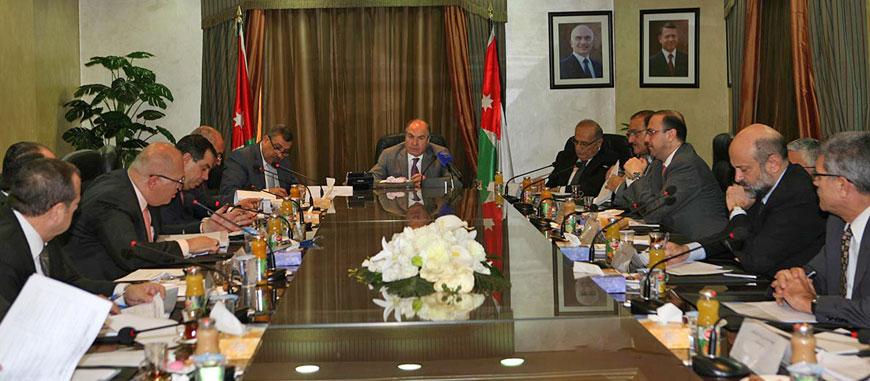You are here
Jordanians to replace guest workers in gov’t departments — Mulki
By JT - Jul 20,2016 - Last updated at Jul 20,2016

Prime Minister Hani Mulki chairs an Economic Policies Council meeting in Amman on Tuesday (Petra photo)
AMMAN — The government has set the employment of local workers as a condition to approve outsourcing contracts in many ministries and institutions, Prime Minister Hani Mulki said on Tuesday.
Speaking during a meeting of the higher committee for the National Employment Strategy at the Labour Ministry, Mulki said jobs in government departments that were usually outsourced to service companies would now be taken by Jordanians.
He also called for studies to be undertaken into the possibility of offering health and social insurance to Jordanians who take up such jobs.
Replacing guest workers with Jordanians should be based on thorough studies in order to not affect the private sector, Mulki said.
He added that the government’s main priorities were combating unemployment and poverty, and creating jobs by funding small enterprises, particularly in remote areas.
The labour market should be well streamlined, he said, adding that the Labour Ministry should be linked online with border authorities to control and monitor the entry of guest workers.
Labour Minister Ali Ghezawi briefed the committee on eight measures taken to stimulate the labour market, which include allocating JD25 million to the Development and Employment Fund to be loaned to young Jordanians with preferential terms.
Ghezawi said applications for loans have been open since July 10.
The ministry has also stopped bringing guest workers into Jordan since June 28, and has formed a committee to study the labour market, the minister noted.
Meanwhile, some JD20 million has been allocated for soft loans to retirees of the Social Security Corporation, he explained, adding that the application process opened on July 14.
Also on Tuesday, Mulki chaired an Economic Policies Council meeting that discussed work mechanisms and aspects of the council.
The council decided to form task forces for its committees on economic legislation reform, tax and customs reform, financing, human resources, small projects, business entrepreneurship, transportation, commerce and business environment, with the participation of council members and relevant ministers.
Mulki expressed the government’s seriousness in dealing with the council’s recommendations, Petra reported.
Speaking at the meeting, Finance Minister Omar Malhas briefed attendees on major characteristics of the economic and financial reform programme intended to be signed with the International Monetary Fund.
Related Articles
AMMAN — Any government tender floated by the Public Works Ministry must clearly require that the labour force implementing it be Jordanian,
AMMAN — Labour Minister Ali Ghezawi on Tuesday said the ministry’s recent decision to freeze work permits to guest workers, except for domes
AMMAN — The projects funded under the mass self-recruitment programme, for which the government has allocated JD25 million, are not to give


















